
Arthritis
Rheumatoid arthritis is a chronic, systemic autoimmune disease affecting millions. It is characterized by persistent pain and stiffness, along with progressive joint destruction, particularly in the hands and feet, leading to crippling deformities. What can we do to prevent it and treat it?
In a famous 13-month-long randomized controlled trial of plant-based diets for rheumatoid arthritis, patients were put on a vegan diet for three and a half months, and then switched to an egg-free lactovegetarian diet for the remainder of the study. Compared to the control group, who didn’t change their diet at all, the plant-based group had a significant improvement in morning stiffness within the first month, cutting the number of hours they suffered from joint stiffness in half. Pain dropped from five out of ten down to less than three out of ten. The plant-based group subjects also reported subjectively feeling better and experiencing significant improvement in their grip strength, fewer tender joints, less tenderness per joint, and less swelling, with the added benefit of losing about 13 pounds and keeping most of that weight off throughout the year. They also had a drop in inflammatory markers in their blood. The question is why. What does diet have to do with inflammatory joint disease? One way plant-based diets may help rheumatoid arthritis is by decreasing exposure to an inflammatory compound found in animal products.
Arthritis may also be triggered by Yersinia bacteria, which reportedly sickens nearly one hundred thousand Americans yearly. In every outbreak for which a source has been found, the culprit was contaminated pork. In most cases, Yersinia food poisoning leads to little more than acute gastroenteritis, but the symptoms can become severe and mirror appendicitis, resulting in unnecessary emergency surgeries. Long-term consequences of Yersinia infection include chronic inflammation of the eyes, kidneys, heart, and joints. Studies have found that within a year of contracting Yersinia food poisoning, victims appear 47 times more likely to come down with autoimmune arthritis, and the bacteria may also play a role in triggering an autoimmune thyroid condition known as Graves’ disease.
Our weight may also play a factor. Over recent decades, the number of American children reported to be overweight has increased by more than 100 percent. Children who are obese at age six are thought more likely than not to stay that way, and 75 to 80 percent of obese adolescents may remain obese as adults. As such, childhood obesity can be a powerful predictor of adult disease and death. For example, being overweight as a teenager was found to predict disease risk even 55 years later. Such individuals may end up with twice the risk of dying from heart disease and a higher incidence of other diseases, including colorectal cancer, gout, and arthritis.
Not only may plant-based diets improve or even eliminate arthritis symptoms, but specific plant foods may provide some relief. For example, açai berries showed modest benefit for osteoarthritis sufferers. Tart cherries appear to be so anti-inflammatory that they can be used to treat a painful type of arthritis called gout. Delicious dietary treatments are much welcomed, as some gout drugs can cost $2,000 a dose, carry no clear-cut distinction between nontoxic, toxic, and lethal doses, or can cause a rare life-threatening side effect in which your skin detaches from your body.
Curcumin, the pigment in turmeric that gives it that bright yellow color, has been shown to effectively treat rheumatoid arthritis better than the leading drug of choice. Consuming turmeric with soy may offer a double benefit for osteoarthritis sufferers. Scrambled tofu is the classic turmeric-soy combination, but let me share one of my favorites: a pumpkin pie smoothie you can whip up in less than three minutes. Simply blend a can of pumpkin purée, a handful of frozen cranberries and pitted dates, pumpkin pie spice to taste, a quarter-inch turmeric slice (or quarter-teaspoon of powder), and unsweetened soymilk to reach your preferred consistency.
For substantiation of any statements of fact from the peer-reviewed medical literature, please see the associated videos below.
Popular Videos for Arthritis


Apple Peels Put to the Test for Chronic Joint Pain
Are the health benefits associated with apple consumption simply due to other healthy behaviors among...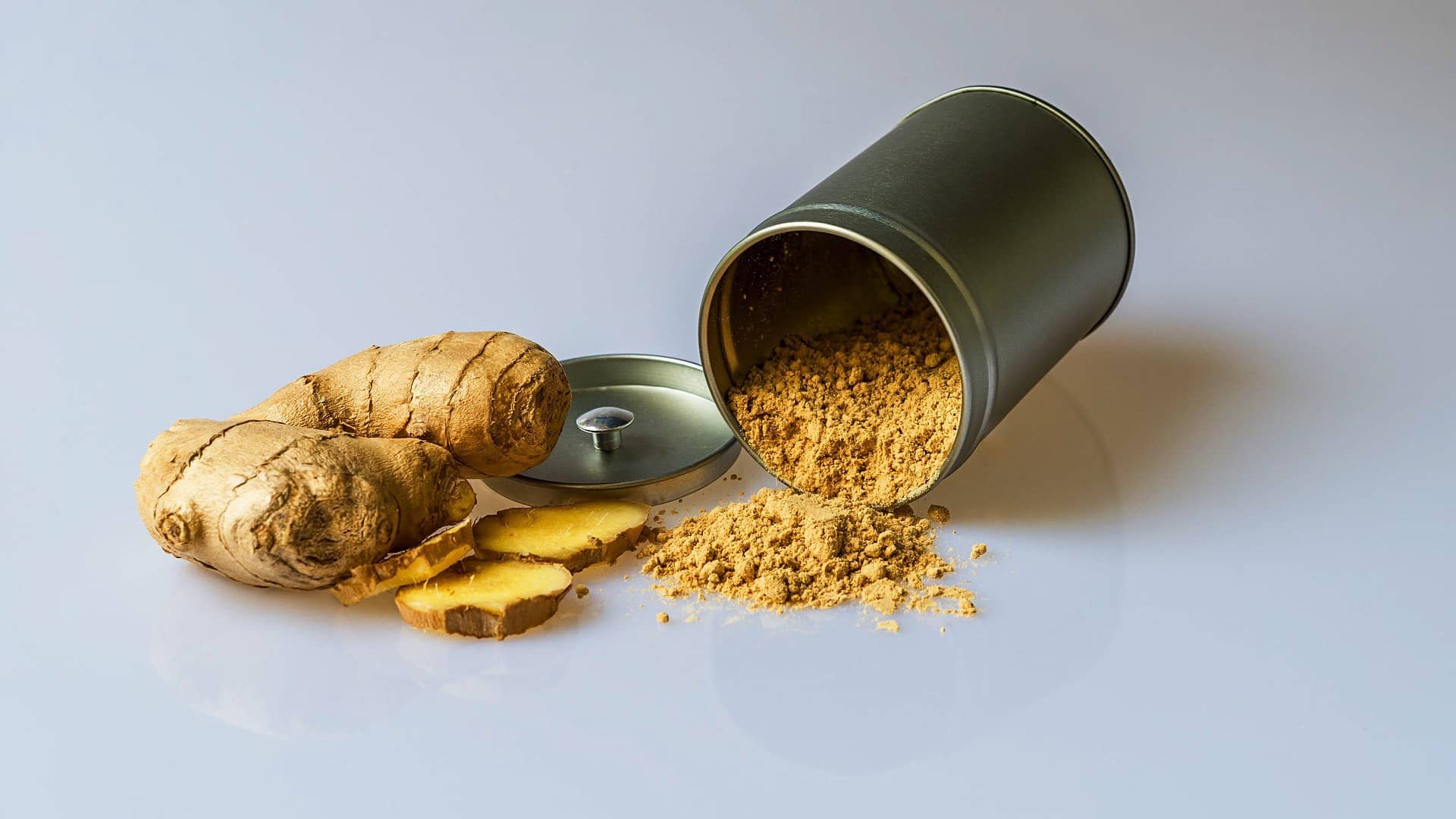
Ginger for Osteoarthritis
A quarter- to a half-teaspoon a day of powdered ginger can be as pain-relieving as...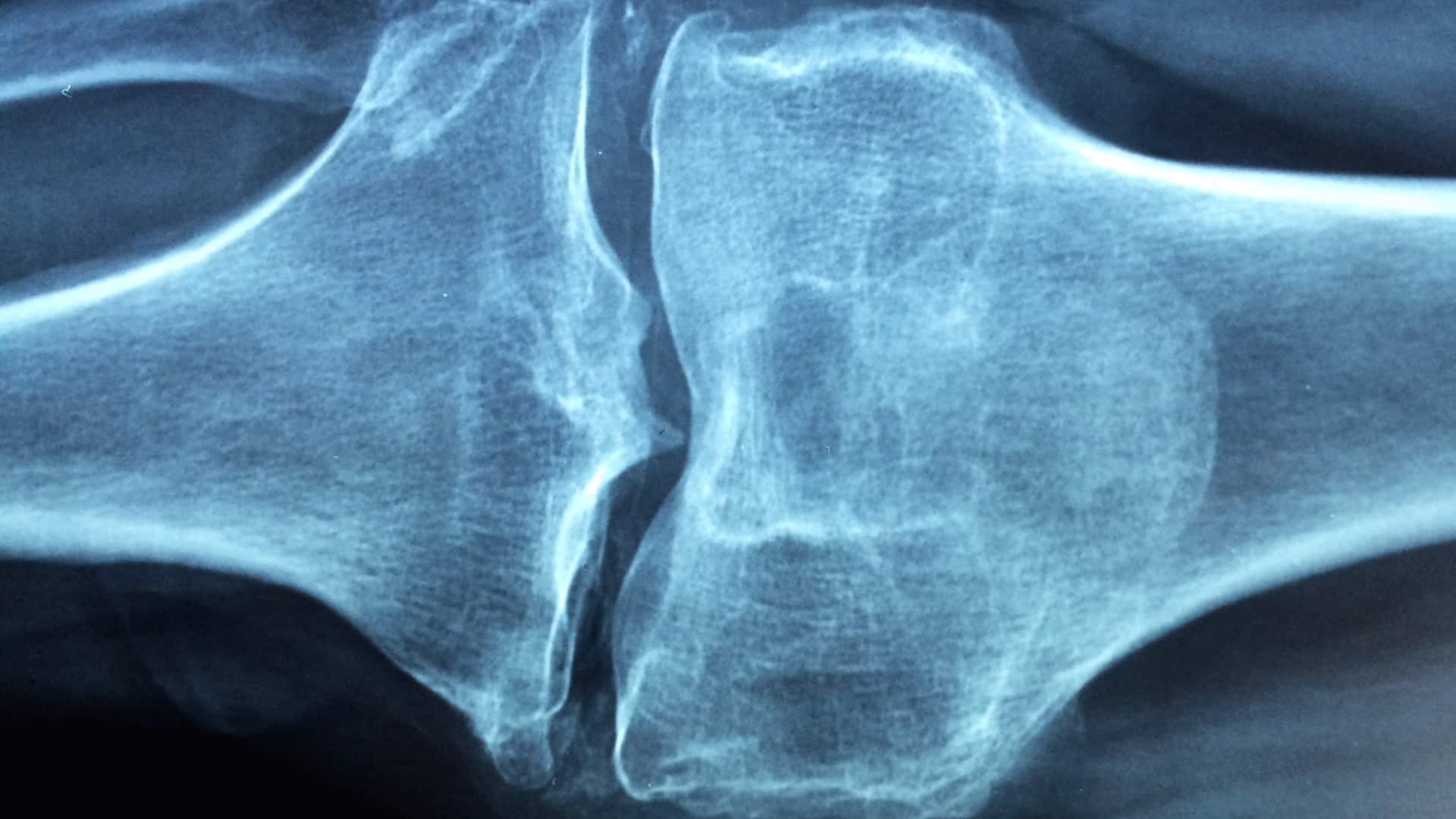
Sesame Seeds for Knee Osteoarthritis
Can the consumption of sesame seeds improve the clinical signs and symptoms of arthritis?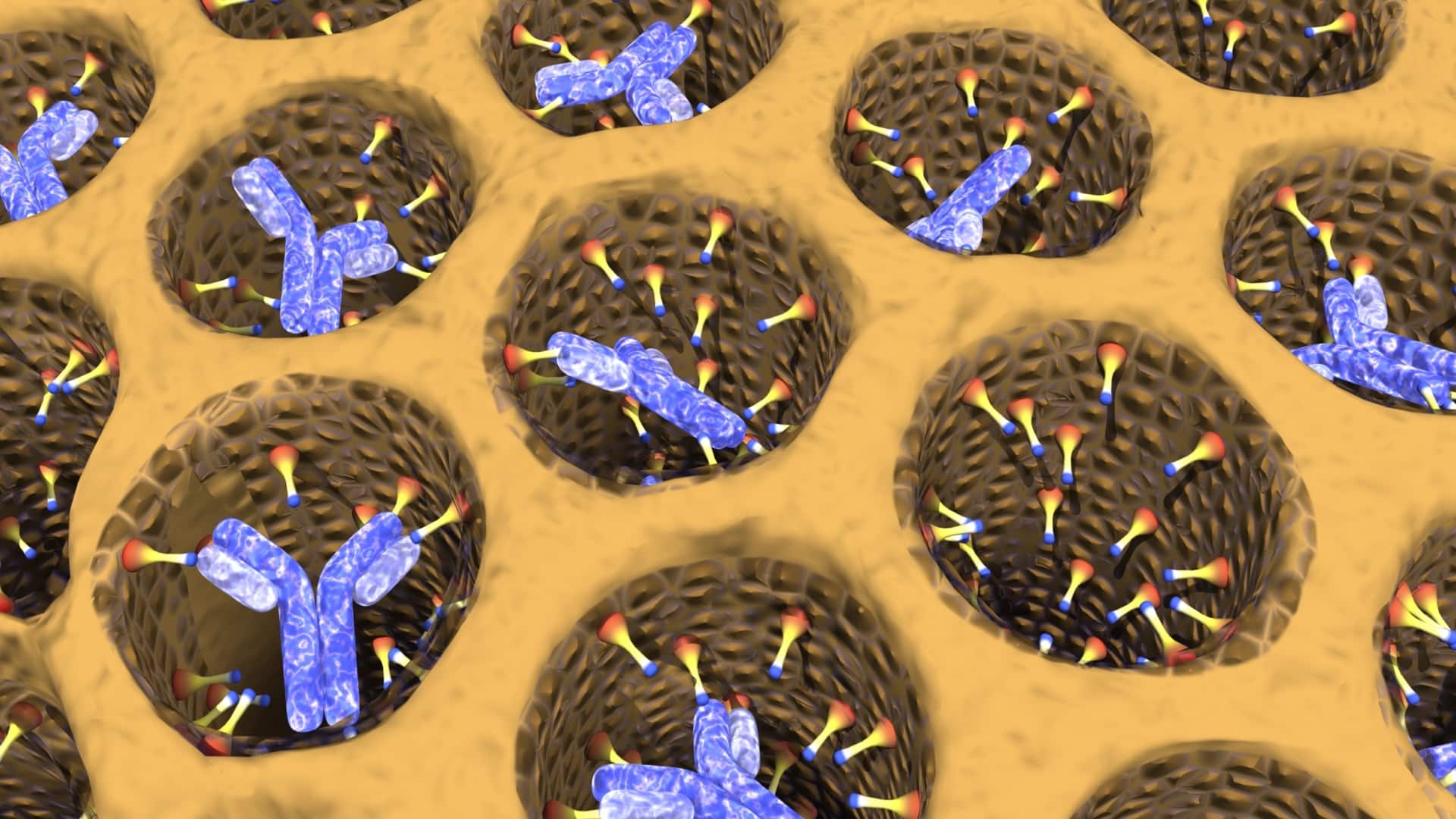
Why Do Plant-Based Diets Help Rheumatoid Arthritis?
Rheumatoid arthritis may be triggered by autoimmune friendly fire against a urinary tract infection bacteria...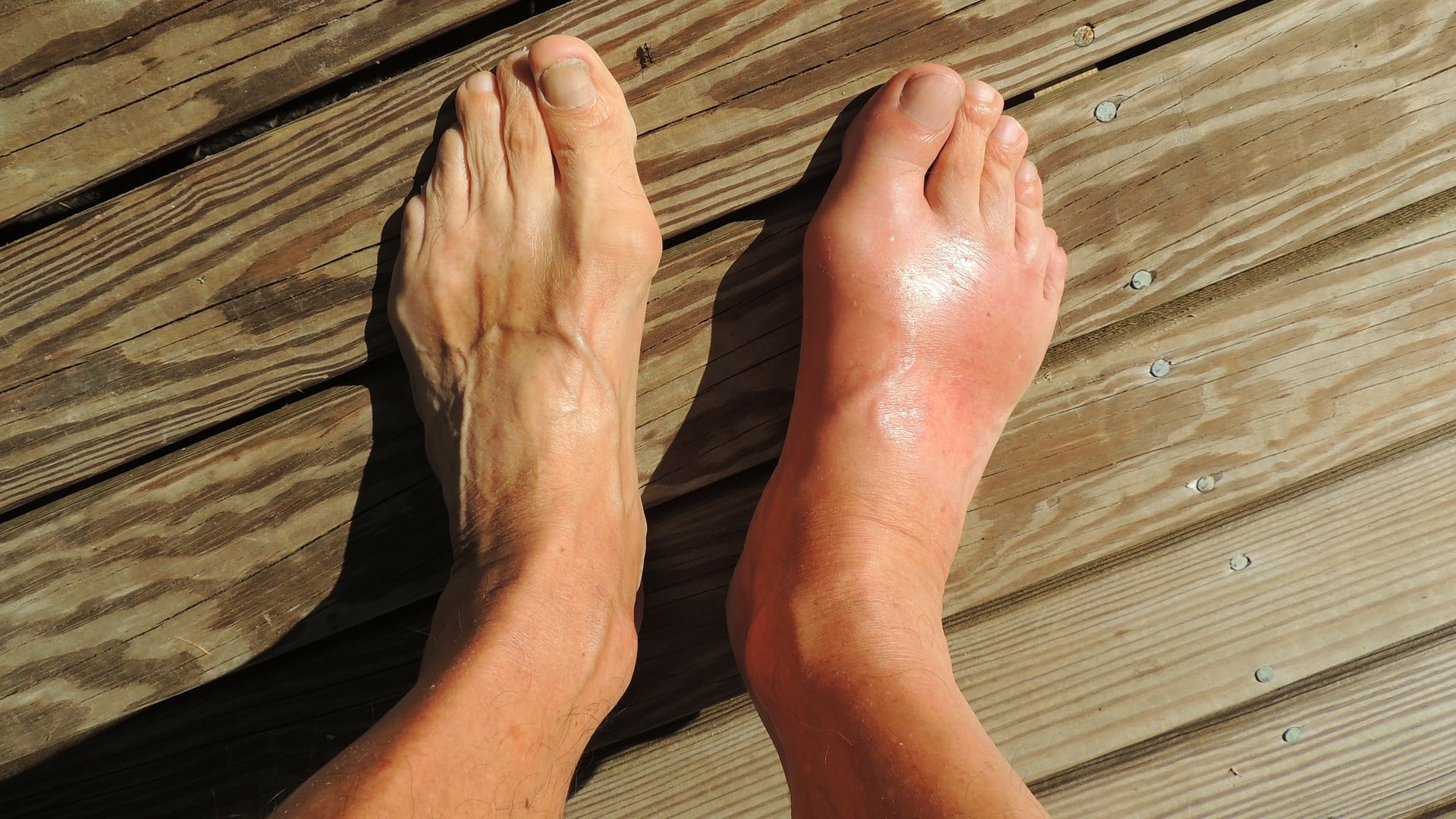
Treating Gout with Cherry Juice
Cherry consumption has been shown to successfully prevent gout arthritis attacks, but what about cherry...
Gout Treatment with a Cherry on Top
How do sweet cherries compare to the drug allopurinol and a low-purine diet for the...
Turmeric Curcumin and Osteoarthritis
The yellow pigment curcumin in the spice turmeric may work as well as, or better...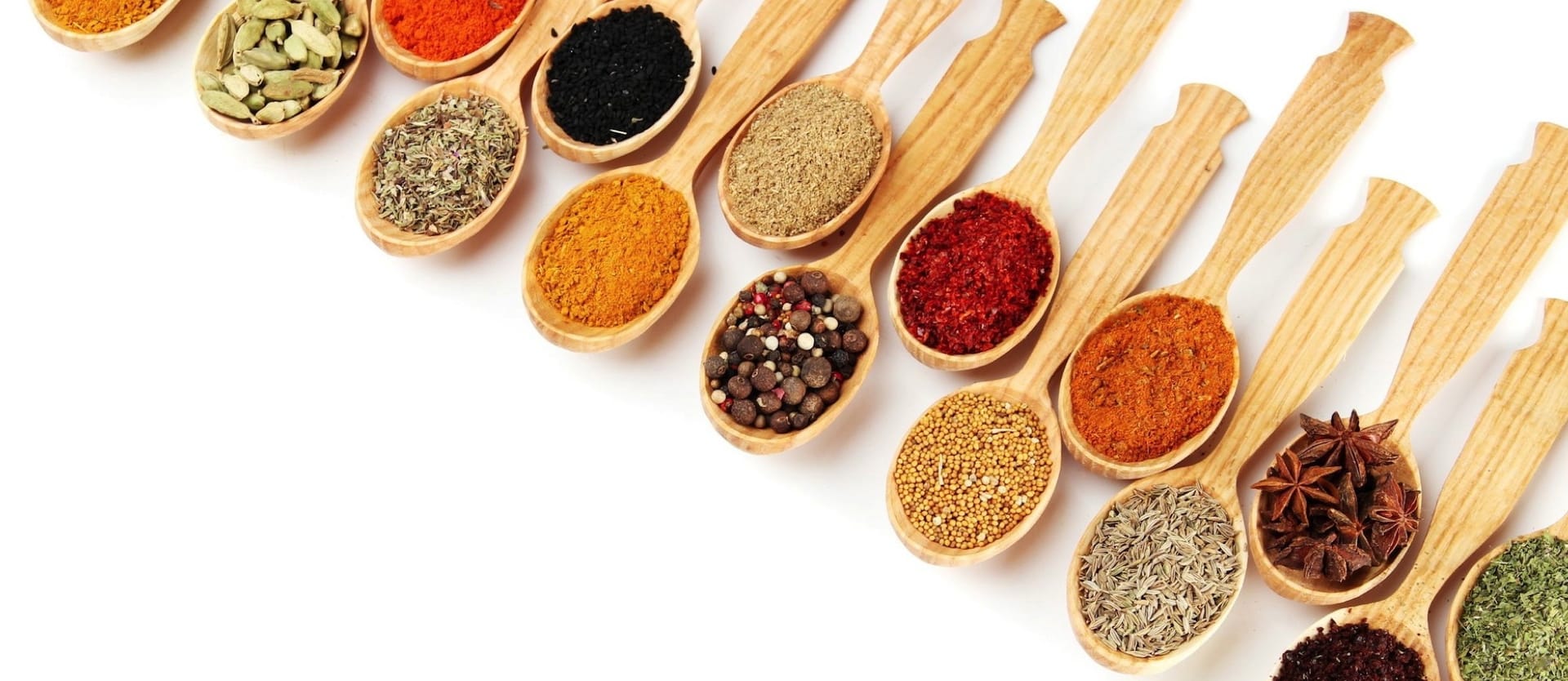
Turmeric Curcumin and Rheumatoid Arthritis
Randomized controlled trial comparing the safety and efficacy of drugs versus curcumin, the yellow pigment...
The Inflammatory Meat Molecule Neu5Gc
Plant-based diets may help rheumatoid arthritis by decreasing exposure to an inflammatory compound found in...
Which Spices Fight Inflammation?
An elegant experiment is described in which the blood of those eating different types of...All Videos for Arthritis
-

Risks of NAD+ Boosting Supplements
Particular caution should be used for NAD+-boosting supplements by those with cancer, a personal or strong family history of cancer and perhaps also by those with inflammatory disorders and certain active infections.
-

Anti-Inflammatory Foods: The Benefits of Berries
Which fruits have anti-inflammatory effects and which do not?
-

The Best Way to Boost NAD+: Supplements vs. Diet (webinar recording)
The pros and cons of all the NAD+ supplements and what are the ways to boost NAD+ naturally with diet and lifestyle?
-

There’s a Fly in My Aging Research!
How do you unlock the mysteries of aging?
-

Epigenetic Clocks for Testing Your Biological Age
Epigenetic clocks have become established as robust measures of chronological age, surpassing telomere length as the best age predictor.
-

Benefits and Side Effects of Chondroitin for Osteoarthritis
Why do some clinical guidelines recommend chondroitin supplements but others do not?
-

Benefits and Side Effects of Glucosamine for Osteoarthritis
Billions are spent on glucosamine supplements every year. Do they work? Are they safe?
-

Resveratrol Tested for Alzheimer’s, Arthritis, and Osteoporosis
Resveratrol appears to triple the rate of age-related brain shrinkage.
-

Collagen Supplements for Arthritis
Can collagen beat out placebo for knee osteoarthritis?
-

Yoga Put to the Test for Headaches, Diabetes, Osteoarthritis, and the Elderly
What happens when real yoga is compared to sham yoga?
-

Does Lack of Sleep Cause You to Gain Weight?
Those randomized to 8.5 hours of sleep a night lost significantly more body fat than those who got 5.5 hours.
-

The Best Diet for Fibromyalgia and Other Chronic Pain Relief
Anti-inflammatory diets can be effective in alleviating chronic pain syndromes.
-

Pomegranate: A Natural Treatment for Rheumatoid Arthritis
Pomegranates are put to the test for weight loss, diabetes, COPD, prostate cancer, osteoarthritis, and rheumatoid arthritis.
-

Extra Virgin Olive Oil for Arthritis
What happened when topical olive oil was pitted against an ibuprofen-type drug for osteoarthritis and rheumatoid arthritis?
-

Can Vegan Fecal Transplants Lower TMAO Levels?
If the microbiome of those eating plant-based diets protects against the toxic effects of TMAO, what about swapping gut flora?
-

The Best Knee Replacement Alternative for Osteoarthritis Treatment
Is there a nonsurgical alternative to knee replacement surgery that instead treats the cause and offers only beneficial side effects?
-

Fasting for Autoimmune Diseases
Various fasting regimens have been attempted for inflammatory autoimmune diseases such as lupus, ankylosing spondylitis, chronic urticaria, mixed connective-tissue disease, glomerulonephritis, and multiple sclerosis, as well as osteoarthritis and fibromyalgia.
-

Fasting for Rheumatoid Arthritis
Fasting, followed by a plant-based diet, is put to the test for autoimmune inflammatory joint disease.
-

Benefits of Flaxseeds for Inflammation
Elevated levels of pro-inflammatory, aging-associated oxylipins can be normalized by eating ground flaxseed.
-

Does Intermittent Fasting Increase Human Life Expectancy?
Alternate-day modified fasting is put to the test for lifespan extension.
-

Berries for Inflammation and Osteoarthritis Treatment
Double-blind, randomized, placebo-controlled trials on berries and the first clinical study on the effects of berries on arthritis.
-

Is Fiber an Effective Anti-Inflammatory?
Most Americans get less than half the recommended minimum fiber intake a day and the benefits of fiber go way beyond bowel regularity.
-

Benefits of Cabbage Leaves for Relief of Engorged Breasts
Cabbage is put to the test in a randomized controlled trial.
-

Ground Ginger to Reduce Muscle Pain
There have been at least eight randomized, double-blind, placebo-controlled trials of ginger for pain.
-

Benefits of Cabbage Leaves on the Knee for Osteoarthritis
Unbelievably, a randomized controlled trial of cabbage leaf wraps for arthritis was published.
-

What Is the Ideal White Blood Cell Count?
Since white blood cell count is such a strong predictor of lifespan, what should we aim for and how do we get it there?
-

The Effects of Low-Level Lead Exposure in Adults
Much of the lead found in adults today was deposited into our skeletons decades ago and is just now leaching out from our bones into our blood. What are the health consequences of having lead levels down around the American average?
-

Should We All Take Aspirin to Prevent Heart Disease?
The benefits of taking a daily aspirin must be weighed against the risk of internal bleeding.
-

Ginger for Osteoarthritis
A quarter- to a half-teaspoon a day of powdered ginger can be as pain-relieving as ibuprofen, without the risk of damage to the intestinal lining.
-

Parkinson’s Disease and the Uric Acid Sweet Spot
The link between Parkinson’s and dairy may not be explained just by the pesticides and lactose.
-

Sesame Seeds for Knee Osteoarthritis
Can the consumption of sesame seeds improve the clinical signs and symptoms of arthritis?
-

Food as Medicine: Preventing and Treating the Most Dreaded Diseases with Diet
Dr. Greger has scoured the world’s scholarly literature on clinical nutrition and developed this new presentation based on the latest in cutting edge research exploring the role diet may play in preventing, arresting, and even reversing some of our most feared causes of death and disability.
-

Why Do Plant-Based Diets Help Rheumatoid Arthritis?
Rheumatoid arthritis may be triggered by autoimmune friendly fire against a urinary tract infection bacteria called Proteus mirabilis, which could help explain why sufferers randomized to a plant-based diet experience such remarkable benefit.
-

The Cilantro Gene
Why are there such polarizing opinions about the taste of the fresh herb cilantro (also known as coriander leaves)?
-

Treating Gout with Cherry Juice
Cherry consumption has been shown to successfully prevent gout arthritis attacks, but what about cherry juice concentrate?
-

How to Prevent Prediabetes in Children
Prediabetes is a disease in and of itself, associated with early damage to the eyes, kidneys, and heart. The explosion of diabetes in children is a result of our epidemic of childhood obesity. A plant-based diet may help, given that vegetarian kids grow up not only taller, but thinner.
-

Inhibiting Platelet Aggregation with Berries
The number one killer of Americans may be not eating enough fruit. Even if we just met the recommendations for fruit and vegetable intake we could save more than 100,000 people a year. One of the mechanisms by which plant foods protect us is by keeping our platelets from becoming activated.
-

Gout Treatment with a Cherry on Top
How do sweet cherries compare to the drug allopurinol and a low-purine diet for the treatment of the painful inflammatory arthritis gout?
-

Alpha-Gal and the Lone Star Tick
Our immune response against a foreign molecule present in animal products may play a role in some allergic, autoimmune, and inflammatory disorders. This reaction is thought to underlie tick bite-triggered meat allergies.
-

Turmeric Curcumin and Osteoarthritis
The yellow pigment curcumin in the spice turmeric may work as well as, or better than, anti-inflammatory drugs and painkillers for the treatment of knee osteoarthritis.
